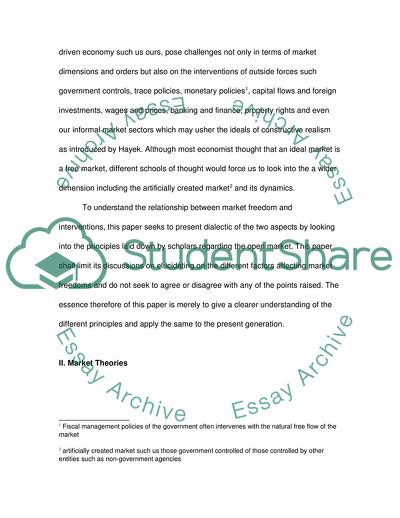Cite this document
(Constructive and Evolutionary Rationalism, Different Factors Affecting Literature review, n.d.)
Constructive and Evolutionary Rationalism, Different Factors Affecting Literature review. Retrieved from https://studentshare.org/macro-microeconomics/1703533-market-driven-management-what-kinds-of-freedom-do-markets-provide-discuss-with-reference-to-classic-proponents-and-critics-of-market-order
Constructive and Evolutionary Rationalism, Different Factors Affecting Literature review. Retrieved from https://studentshare.org/macro-microeconomics/1703533-market-driven-management-what-kinds-of-freedom-do-markets-provide-discuss-with-reference-to-classic-proponents-and-critics-of-market-order
(Constructive and Evolutionary Rationalism, Different Factors Affecting Literature Review)
Constructive and Evolutionary Rationalism, Different Factors Affecting Literature Review. https://studentshare.org/macro-microeconomics/1703533-market-driven-management-what-kinds-of-freedom-do-markets-provide-discuss-with-reference-to-classic-proponents-and-critics-of-market-order.
Constructive and Evolutionary Rationalism, Different Factors Affecting Literature Review. https://studentshare.org/macro-microeconomics/1703533-market-driven-management-what-kinds-of-freedom-do-markets-provide-discuss-with-reference-to-classic-proponents-and-critics-of-market-order.
“Constructive and Evolutionary Rationalism, Different Factors Affecting Literature Review”. https://studentshare.org/macro-microeconomics/1703533-market-driven-management-what-kinds-of-freedom-do-markets-provide-discuss-with-reference-to-classic-proponents-and-critics-of-market-order.


